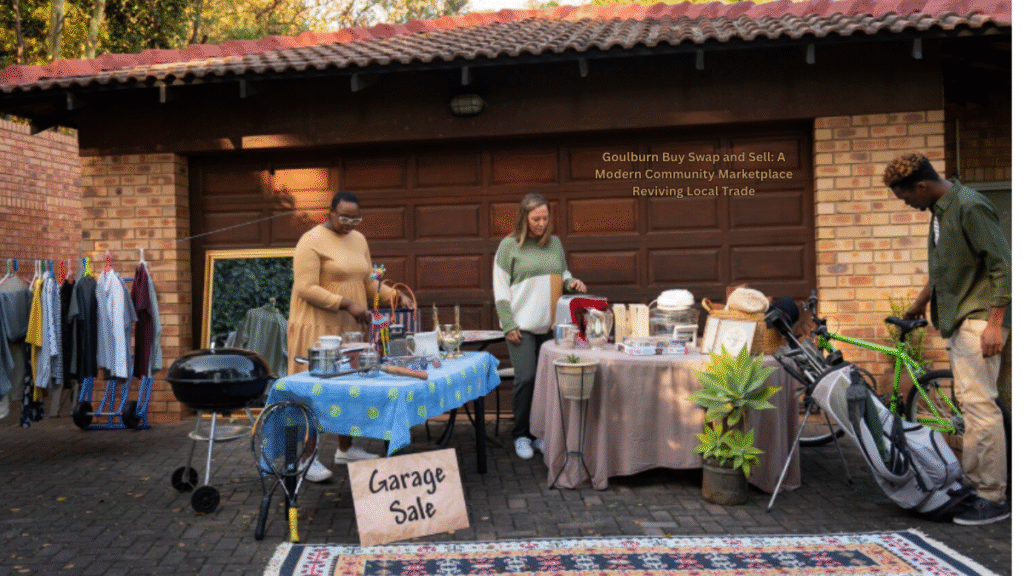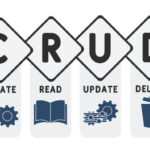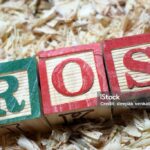In Goulburn, a historic city nestled between Sydney and Canberra, “Buy Swap and Sell” is far more than an online noticeboard — it’s a community-driven marketplace that powers local exchange, thrift, and sustainability. For those searching “Goulburn buy swap and sell,” the term refers to digital and in-person networks where residents trade secondhand goods, post wanted ads, or swap services, creating a vibrant circular economy that strengthens the region’s local fabric. Whether it’s furniture, farming tools, or children’s bikes, Goulburn’s residents have transformed casual selling into a social practice of reuse and local connection.
The Rise of Buy Swap and Sell Culture in Regional Australia
Australia’s buy swap and sell movement began as informal gatherings and local classifieds, but over time it migrated online — first to community noticeboards, then to digital platforms and social groups. In regional centers like Goulburn, where distances are long and local economies are tightly woven, these platforms filled a crucial gap between convenience and connection.
Goulburn’s iteration reflects the unique rhythm of a rural city — pragmatic, community-minded, and resourceful. Residents use these networks to avoid the high costs of retail goods, but also to circulate items within a trusted local ecosystem. The simplicity of listing an item, posting a photo, and coordinating a pickup from a neighbor has reintroduced a sense of local trade often missing in urban consumerism.
How Goulburn’s Buy Swap and Sell Networks Work
At its core, Goulburn’s buy swap and sell ecosystem operates as a community marketplace — part digital forum, part neighborhood exchange. The rules are simple: you can list an item to sell, swap it for something else, or give it away. The most active platforms include social media groups, local community websites, and small business noticeboards that host weekly updates.
Transactions tend to happen locally — within a few kilometers — which eliminates the need for shipping and reduces environmental impact. Buyers appreciate being able to inspect goods before purchasing, while sellers value the direct cash exchange and personal interaction.
Most listings fall into familiar categories:
- Household furniture
- Garden tools and equipment
- Children’s toys and clothes
- Vehicles and parts
- Farm machinery and tools
- Collectibles and antiques
But what distinguishes Goulburn’s scene is its balance between urban convenience and regional trust. In a city where people often recognize each other at the post office or farmers’ market, reputation matters as much as price.
Why It Matters: The Social Economy of Reuse
Goulburn’s buy swap and sell culture is more than a market — it’s a social system rooted in mutual benefit. Participants describe it as “neighborly trading,” where transactions become opportunities for conversation, connection, and environmental responsibility.
Each reused item represents a small act of sustainability. Rather than discarding goods into landfill, residents extend the life of everyday products. A stroller might serve three families over a decade. A used lawnmower might continue working on a new property. The local trade cycle saves money, but it also reduces consumption and waste.
This system supports what economists call a “circular economy,” where goods are continually reused, repaired, and redistributed within a community. In Goulburn, that philosophy has become everyday practice — visible in garages, sheds, and local Facebook posts.
Economic Benefits: Local Value Retention
The buy swap and sell model helps keep money circulating within Goulburn’s economy. Instead of purchasing new goods from large retailers, locals buy from each other, preserving spending power in the community.
To understand this dynamic, consider a simplified comparison:
| Economic Flow | Traditional Retail Purchase | Buy Swap and Sell Transaction |
|---|---|---|
| Who benefits | National or global retailer | Local seller within Goulburn |
| Money circulation | Leaves local economy | Stays within community |
| Environmental cost | High (new production, shipping) | Low (reuse, minimal transport) |
| Social impact | Minimal personal connection | Strengthens community trust |
This table illustrates how even small-scale local exchanges can collectively produce significant economic resilience. For Goulburn’s small businesses and households, these platforms function as both savings mechanisms and income supplements.
Technology Meets Tradition
What makes Goulburn’s buy swap and sell community unique is its blend of old-fashioned trust with modern digital tools. Online groups act as the new town square, where listings replace bulletin boards but the tone remains personal and conversational.
Residents have adapted social media platforms for structured community commerce. Posts are moderated to prevent scams and maintain fairness, and local administrators play a quiet but vital role in upholding community standards. Many groups follow specific guidelines: real photos, honest descriptions, and local-only transactions.
Technology has amplified what Goulburn has always done best — neighborly cooperation. While some participants access the groups for practical reasons, many remain for the sense of community that arises when people help each other find what they need.
Sustainability and the Green Shift
As environmental awareness grows across Australia, Goulburn’s buy swap and sell practices are increasingly recognized as part of a broader sustainability shift. By promoting reuse, reducing transport emissions, and diverting waste from landfills, these platforms support the city’s environmental goals.
Households adopting secondhand exchange not only save money but actively reduce their carbon footprint. For example, reusing a household appliance saves both the energy embedded in its production and the waste created by disposal. Local environmental groups have begun integrating buy swap and sell awareness into sustainability campaigns, encouraging residents to “rehome before you replace.”
This grassroots environmentalism resonates deeply in regional Australia, where self-sufficiency and conservation are long-held values. For Goulburn, buy swap and sell is both a marketplace and a moral statement: sustainable living starts locally.
Challenges and Regulation
Despite its benefits, the system faces modern challenges. Online scams, misrepresentation, and non-delivery occasionally undermine trust. Local administrators often act as informal regulators, removing suspicious listings and reminding members to verify buyers before meeting.
Another emerging issue involves informal business use — small-scale sellers sometimes use community platforms to sell commercial volumes of goods. This blurs the boundary between casual trade and regulated business activity. Some local councils in Australia have begun exploring frameworks for digital micro-trade, balancing freedom with fairness.
In Goulburn, community self-regulation remains effective because participation depends on reputation. Trust serves as both social currency and enforcement mechanism.
The Human Dimension: Stories of Exchange
Behind every listing lies a story. A family selling a cot once used by their children passes it to new parents starting out. A retired farmer swaps his old tools for a guitar he’s always wanted to learn. A teenager finds their first bicycle through a neighbor’s post.
These exchanges are small, almost invisible, but collectively they define the tone of Goulburn’s community life — generous, practical, and rooted in shared experience. For many, the appeal isn’t purely economic; it’s emotional. Buy swap and sell becomes a thread connecting generations, a reminder that value isn’t always measured in dollars.
Comparing to Other Marketplaces
While larger classified platforms dominate national markets, Goulburn’s local groups retain an advantage in immediacy and trust. Users often prefer to deal with people they might meet at the supermarket rather than faceless profiles.
In contrast to broader e-commerce models that emphasize speed and anonymity, Goulburn’s community trade values dialogue and fairness. The exchange of messages, the handshake at pickup, the follow-up “thank you” — these small rituals sustain human connection in an increasingly digital economy.
Moreover, local trade often avoids additional costs like postage or platform fees. That simplicity reinforces its appeal: direct trade, fair price, and mutual respect.
Impact on Small Businesses
Interestingly, the buy swap and sell culture has also supported Goulburn’s small business ecosystem. Many artisans, hobbyists, and part-time craftspeople first test their products through local exchange groups before formalizing their businesses. A candle maker, for example, may start selling homemade products in a community group, gather feedback, and eventually open a stall at the local market.
This informal incubation system lowers barriers to entrepreneurship. It allows residents to experiment, learn, and build customer relationships without heavy startup costs. Goulburn’s creative economy quietly benefits from these community networks, illustrating how grassroots trade can stimulate local enterprise.
Cultural Reflection: A Return to Localism
The growing popularity of buy swap and sell in Goulburn mirrors a broader cultural shift toward localism — a preference for local goods, relationships, and environmental responsibility. In a time when online shopping and global logistics dominate, this regional movement reasserts the value of proximity and authenticity.
Goulburn’s residents demonstrate that community trade isn’t nostalgia — it’s adaptation. They use modern platforms to achieve timeless goals: saving money, reducing waste, and supporting one another. In that sense, buy swap and sell reflects both continuity and innovation, bridging traditional values with digital efficiency.
Digital Etiquette and Safety Tips
For new participants, understanding community etiquette ensures smoother and safer transactions. Common recommendations include:
- Use clear photos and accurate descriptions. Transparency builds trust.
- Meet in public or well-lit areas. Safety first, especially for high-value items.
- Agree on prices before meeting. Avoid misunderstandings.
- Respect hold agreements. If someone says they’ll pick up tomorrow, honor that commitment.
- Report suspicious activity. Protecting community trust is everyone’s role.
These unwritten rules keep the system functional and friendly. Unlike commercial platforms, enforcement here depends on mutual accountability rather than algorithms.
The Future of Goulburn Buy Swap and Sell
As Goulburn continues to grow, its community trade networks may evolve into more organized local exchange hubs — possibly hybrid models blending physical swap events with digital coordination. There is potential for collaboration with local councils, environmental agencies, and schools to expand the educational aspect of reuse culture.
Imagine a “Goulburn Exchange Week,” where residents host citywide swap events, supported by local businesses offering discounts for sustainable purchases. Initiatives like these could formalize the social and environmental benefits already evident in the city’s grassroots trading culture.
Technology will continue to shape these exchanges, but the underlying human impulse — to share, trade, and connect — will remain unchanged.
A Broader Perspective: What Goulburn Teaches About Community Commerce
Goulburn’s experience offers insights relevant far beyond its borders. In an era of digital anonymity, this regional network demonstrates how commerce can coexist with trust and locality. It challenges the assumption that convenience must come at the expense of connection.
By leveraging simple digital tools and strong community values, Goulburn has created an ecosystem that is both economically efficient and socially enriching. Its buy swap and sell culture shows that the future of trade might not be in global marketplaces, but in the digital reimagining of local ones.
Frequently Asked Questions (FAQs)
1. What is “Goulburn Buy Swap and Sell”?
It’s a local community marketplace — primarily digital — where residents of Goulburn and surrounding areas buy, sell, or exchange secondhand goods and services.
2. How does it differ from national classifieds?
Unlike national platforms, Goulburn’s buy swap and sell groups focus on local exchange, building trust and minimizing costs and transport.
3. Is it safe to use?
Yes, when basic precautions are followed. Always verify users, meet in safe public locations, and use cash or trusted payment methods.
4. What are the most commonly traded items?
Household goods, garden tools, furniture, electronics, and baby items are frequently listed due to constant local demand and affordability.
5. How does it benefit Goulburn’s economy?
It keeps money within the community, reduces waste, and promotes small-scale entrepreneurship while strengthening social bonds.
Conclusion
“Goulburn Buy Swap and Sell” represents a powerful fusion of practicality, sustainability, and localism. It’s a model of how regional communities can thrive by sharing resources, reducing waste, and maintaining human connection in a digital world.
What began as a simple idea — trading among neighbors — has evolved into an essential component of Goulburn’s economic and social identity. Through digital tools and collective trust, residents have built an ecosystem that honors both past values and future aspirations.
In an era defined by global commerce, Goulburn reminds us that the most resilient economies still begin with local exchange — one swap, one sale, one neighbor at a time.







